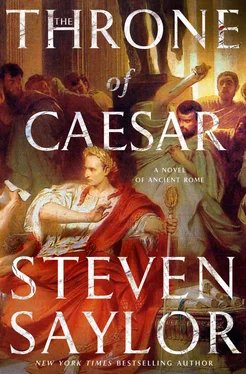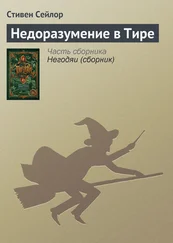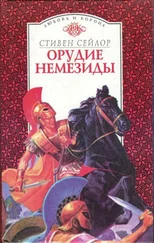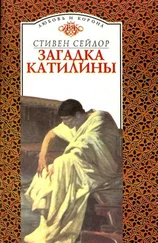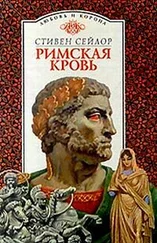Стивен Сейлор - The Throne of Caesar
Здесь есть возможность читать онлайн «Стивен Сейлор - The Throne of Caesar» весь текст электронной книги совершенно бесплатно (целиком полную версию без сокращений). В некоторых случаях можно слушать аудио, скачать через торрент в формате fb2 и присутствует краткое содержание. Год выпуска: 2018, Издательство: St. Martin's Press, Жанр: Исторический детектив, на английском языке. Описание произведения, (предисловие) а так же отзывы посетителей доступны на портале библиотеки ЛибКат.
- Название:The Throne of Caesar
- Автор:
- Издательство:St. Martin's Press
- Жанр:
- Год:2018
- ISBN:нет данных
- Рейтинг книги:5 / 5. Голосов: 1
-
Избранное:Добавить в избранное
- Отзывы:
-
Ваша оценка:
- 100
- 1
- 2
- 3
- 4
- 5
The Throne of Caesar: краткое содержание, описание и аннотация
Предлагаем к чтению аннотацию, описание, краткое содержание или предисловие (зависит от того, что написал сам автор книги «The Throne of Caesar»). Если вы не нашли необходимую информацию о книге — напишите в комментариях, мы постараемся отыскать её.
The Throne of Caesar — читать онлайн бесплатно полную книгу (весь текст) целиком
Ниже представлен текст книги, разбитый по страницам. Система сохранения места последней прочитанной страницы, позволяет с удобством читать онлайн бесплатно книгу «The Throne of Caesar», без необходимости каждый раз заново искать на чём Вы остановились. Поставьте закладку, и сможете в любой момент перейти на страницу, на которой закончили чтение.
Интервал:
Закладка:
“Yes. But you must have some reaction you can share with me.”
“No.”
“I think you’re evading my question on a technicality.”
“Perhaps. But not a word shall I utter about the Zmyrna until I’ve reached the end.”
In fact, the poem had stirred very strong and very mixed feelings in me, as I suspect Meto knew already, having observed my face and heard my voice during those passages when I read aloud. But I was honest when I told Meto I wasn’t ready to talk about the poem. The truth was, I didn’t know what to think .
The language was undeniably extraordinary, and the textual allusions were exquisitely erudite, at least insofar as I could judge them, since I had surely missed a great many of them. At times the verses and the multiple layers of meaning they contained were truly sublime. This was a work that would reward many readings.
But what was one to make of the story ? To be sure, Cinna had not invented it. It was a very ancient story, and if it were true, then if anyone was to be blamed for the sequence of events, it was Venus, for inflicting such a terrible curse on a hapless mortal like Zmyrna. Many of the greatest poems, including the Iliad and the Odyssey, were full of the caprices and cruelties of the gods, and the foolishness and suffering of mortals. But why choose this particular story, and lavish so much artistry on it? And so much time; the Zmyrna had famously taken Cinna almost ten years to write. To return to such a project time and again, month after month, reworking one part or another, bejeweling the whole with all the artifice the poet could devise—what was it about this story that had so attracted my drinking companion?
And what about this poem in particular had earned it such a towering reputation? To be sure, Cinna had his detractors, such as Cicero. But poor Cicero counted for less and less these days, not just as a politician but also as a thinker. Most of the respected intellects I knew, including Caesar, and Meto for that matter, had the highest praise for the Zmyrna. It was the fashion these days for poets to dwell on themes that were convoluted or even grotesque, but was the tale of a tortured young girl’s conniving incest with her unsuspecting father really the stuff of great poetry?
I had known not one but two men who laid claim to being the greatest poet of his generation—and their poetry could not be more different. Antipater of Sidon had never written anything remotely like this! The Zmyrna was a world away from the standards of excellence I had been taught as a boy, like the staid poetry of Ennius. Even Catullus at his most scabrous had never written anything with such a twisted theme.
Meto and I rose, stretched in unison, and made ready to go to bed. He would spend the night under my roof but planned to leave at the first cock’s crow, long before I was up and about.
“There is one thing I’d like to ask you,” I said. “What do you make of the nurse’s claim?”
“What’s that?”
“In the poem, the nurse speaks of incest as being perfectly normal among animals—and even among humans, ‘somewhere far away.’ Can that be right?”
“Well, I’m not a farmer, Papa, so I can’t speak to the erotic dalliances of livestock. Nor am I a hunter, so I don’t know about wild animals, either. But among mortals, doesn’t Cleopatra come from a long line of intermarrying siblings?”
“Siblings, yes. But not parent and child. At least, I don’t think so.…”
“Caesar dreamed of copulating with his mother, the night before we crossed the Rubicon,” said Meto, sounding wistful. “Perhaps Cinna indulged in a bit of license with the nurse’s speech. The Zmyrna is a work of poetry, Papa, not animal husbandry.”
I nodded, and the two of us headed to our bedrooms. As we left the library, a slave slipped silently into the room to extinguish the lamps.
Lying beside Bethesda, who snored ever so gently, her face turned away from me, I closed my eyes and pulled the coverlet to my chin. Phrases from the poem echoed in my ears, and images conjured by the poet flitted and floated across my eyes as slowly, slowly I drifted from wakefulness to sleep.
DAY FOUR: MARCH 13
XXIII
The next morning I longed to sleep late, but Bethesda kept slipping into the room to pester me, reminding me that I must be off to find that bothersome toga.
“Yes, yes, my love,” I whispered, pulling the coverlet over my head and dozing, until at last it was yanked away by my demanding wife.
I dressed and made my way to the garden. Diana brought me a steaming bowl of crushed millet with goat’s milk and scattered bits of dried fruit. I ate what I could and gave the rest to Davus, who had already consumed his serving.
Rather than setting out at once, I dawdled for as long as I could. Something told me that Cinna was not an early riser. Bast sat on my lap and submitted to my caresses.
At last I set out with Davus beside me, only to realize that I didn’t know the exact location of Cinna’s house, having never been there. I seemed to recall that it was somewhere on the Aventine Hill, and so we headed in that direction.
After only a short walk, our path crossed that of a rotund figure in a senatorial toga, accompanied by a considerable retinue of scribes, bodyguards, and hangers-on. He looked vaguely familiar. As he passed by, I thought of his name.
“Senator Casca,” I called. “May a citizen have a word with you?”
He stopped and turned toward me. Since the end of real elections, politicians were not as responsive as they once had been to any questioner or complainer in the street. The fact that so many Romans had recently sent their fellow citizens to Hades also gave men pause when accosted. One of Casca’s bodyguards moved to shield his master from any sudden move that Davus or I might make. After studying my face for a moment, the portly senator waved the bodyguard aside.
“Gordianus, isn’t it? The one they call the Finder?”
“Why, yes. Though I don’t think we’ve ever—”
“No, but someone—Cicero, I think—once pointed you out to me. He said you were not a bad sort.”
“Did he? How kind of Cicero.”
He grunted. “You wanted a word?”
“Only a quick question. Do you happen to know where Cinna lives?”
“Of course. I dropped in on him only the other day. Over on the Aventine Hill…” He proceeded to give me directions.
“Thank you, Senator.”
Casca nodded. “I’m happy to help you, citizen. Give Cinna my regards.” He turned and walked on.
The directions he gave were clear, and I knew the various streets he had mentioned. In a short time, Davus and I arrived at the house. It was not what I had expected. The tile steps were chipped and weeds grew from the cracks. The yellow-washed plaster on the walls was spotted with bits of mud and mold from the winter rains. The door was very weathered and without ornament. It seemed odd that Cinna should live in such a drab house. Could it be that all his elegance had been invested in his poetry and his personal appearance, with none left over for the place where he lived?
A slave answered the door. He, too, was not what I expected. The man had a stooped back and a furtive manner. He wore the expression of being accustomed to long abuse .
“Is your master up yet?” I asked, smiling to show that I meant no harm.
“Of course. The master rises before the rooster.”
This, too, did not fit my picture of Cinna. “Then tell him that his friend from the tavern has finally read the poem—well, almost all of it—and wants to pay his respects.”
The man gave me a very strange look but scurried off, muttering the message aloud to memorize it.
Читать дальшеИнтервал:
Закладка:
Похожие книги на «The Throne of Caesar»
Представляем Вашему вниманию похожие книги на «The Throne of Caesar» списком для выбора. Мы отобрали схожую по названию и смыслу литературу в надежде предоставить читателям больше вариантов отыскать новые, интересные, ещё непрочитанные произведения.
Обсуждение, отзывы о книге «The Throne of Caesar» и просто собственные мнения читателей. Оставьте ваши комментарии, напишите, что Вы думаете о произведении, его смысле или главных героях. Укажите что конкретно понравилось, а что нет, и почему Вы так считаете.
